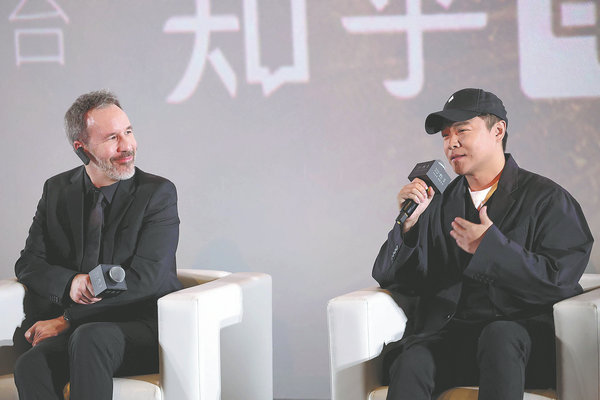

"When a novel is described in great detail, the more fans it attracts, the more difficult it becomes for filmmakers to adapt it, because you feel that every such aspect may be precious to the readers, and then you're reluctant to let anything go," Guo explains.
Villeneuve offers a fresh perspective, stating that he feels compelled to be a "traitor" in order to dismantle the original structure while striving to remain faithful to the novel's essence.
The Quebec-born director, whose famous sci-fi films also include Blade Runner 2049, shares that his passion for tales envisioning futuristic worlds stems from the freedom they provide in artistic creation, while addressing serious and challenging subjects.
"This is something that, if I were setting the story (of Dune: Part Two) in a contemporary world, could be offensive. I would have to choose real cultures carefully, and it might offend some people. However, by setting the story in a futuristic world, I am completely free to discuss what I want to talk about," he adds.

During the director's intense three-day tour in Beijing, he also visited the Forbidden City, meeting fans and holding a talk with director Chen Sicheng, known for the Detective Chinatown trilogy, which grossed 8.74 billion yuan.
Chen demonstrated his admiration by revealing that he has watched almost all of Villeneuve's movies, saying he is curious about what is most difficult for Villeneuve, given his high status in the film industry. Being one of the screenwriters of the two Dune movies, Villeneuve replied that the most challenging phase is still writing the script, especially considering the intense creation procedure for Part Two.
With its spectacular and otherworldly views bringing to life the fictional desert planet Arrakis, the new movie has proven highly popular among Chinese fans, garnering 8.3 points out of 10 on China's major review aggregator Douban.